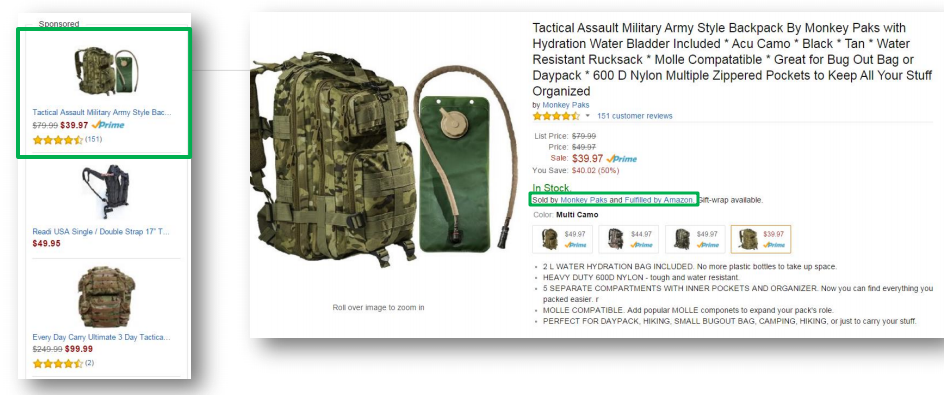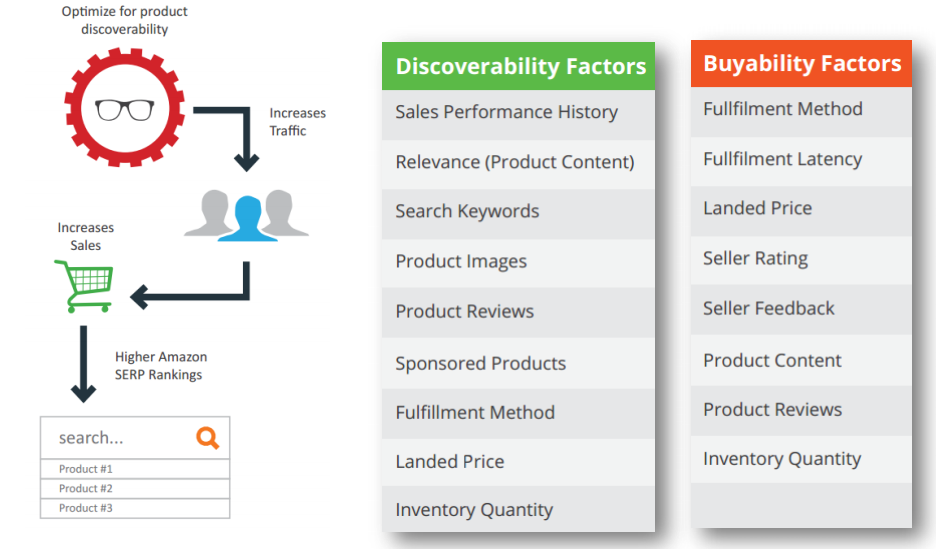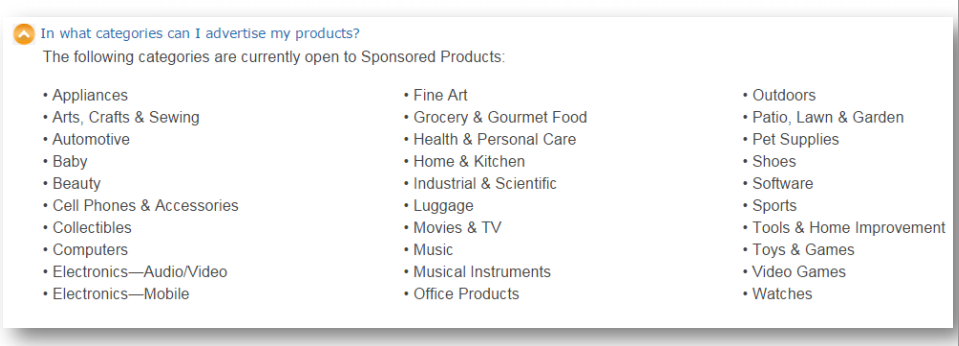The Phased Approach to Amazon Sponsored Products: Product Content Evaluation

Sponsored Products is one of the most powerful tools for driving discoverability and incremental sales for Amazon sellers.
Sponsored Products ads (as seen below) can impact a seller’s overall Marketplace Strategy by:

Sponsored Products is a CPC platform, which exists within the Amazon Marketplace and drives traffic to an Amazon detail page. These ads exists on the right rail of the Amazon SERP, at the bottom of the SERP and also on the carousel on the detail pages.
Sponsored Products is just one advertising strategy that plays into an entire product discoverability and buyability cycle (as seen below).
The goal is to create an advertisement that is compelling enough to catch the shoppers attention and convert. The important discovery we have made here is that as your products get found more – they get more sessions & they get clicked on and purchased more often. As they sell more, they show higher up in the Amazon SERP.

Unfortunately, the most frequent Sponsored Products inefficiencies stem from bid levels, keyword matching and optimization, campaign differentiation and structure.
With so many levers to pull – sometimes it’s hard to know where to start.
In the upcoming series we will walk through the 4 phase Sponsored Products Campaign development process including:
 Before we jump into strategy, it’s important for sellers to understand which ASINs they can and should run Sponsored ads for. According to Pat Petriello, Senior Marketplace Strategist at CPC Strategy product selection bias is probably the number one most common inefficiency.
Before we jump into strategy, it’s important for sellers to understand which ASINs they can and should run Sponsored ads for. According to Pat Petriello, Senior Marketplace Strategist at CPC Strategy product selection bias is probably the number one most common inefficiency.
Often, sellers have products in mind that they want to do well or that they believe will do well – so those are the products that they will advertise or bid higher on or put in multiple ad groups regardless of the performance.
“One of things I would recommend is to be product agnostic,” Petriello said.
“I can almost guarantee that no seller has a product catalog where, 100 percent of their products are going to be winners or 100 percent are going to be losers. You don’t have to make it a guessing game. Use the data that Amazon provides to make those strategic decisions.”
Below is a list of the following categories currently open to Sponsored Products:

As we discuss strategy, you will notice there are two different campaign types available to sellers in Sponsored Products including Automatic & Manual campaigns.
Automatic campaign targeting are ads that surface based on relevancy of the shopper query to seller’s product content. (see video below)
Manual campaign targeting are ads that surface by the relevancy of the shopper query to seller’s chosen keyword targets. (see video below)
The first step in developing a Sponsored Products strategy is to consider your influence on the detail page. A product content evaluation is going to depend on your status in the marketplace.
“If you’re a brand and you are already in the Amazon Brand Registry and you control your detail page content, you have a lot more ability here to impact your content. In this situation, you’ll want to start by tailoring your content as much as possible so that way when it’s leveraged by automated campaigns – it’s leveraging good content to pitch it to relevant customer searches,” Petriello said.
Unfortunately, if you are a reseller on a highly competitive ASIN, you might not have as much flexibility to dictate this content. In this case, you might not want to dedicate as much time energy or resources to developing content you don’t typically have control over.
Pro-Tip: You can think of Automatic Campaigns as similar to Google Shopping PLAs (informed by product content) and Manual Campaigns are akin to traditional Text ads (hydrated by keywords).
Check back next week where we discuss the second phase of Amazon Sponsored Products campaign development: Automatic Campaign Implementation (Phase 1 & 2).
[bctt tweet=”Phased Approach to Amazon Sponsored Products: Product Content Evaluation”]
